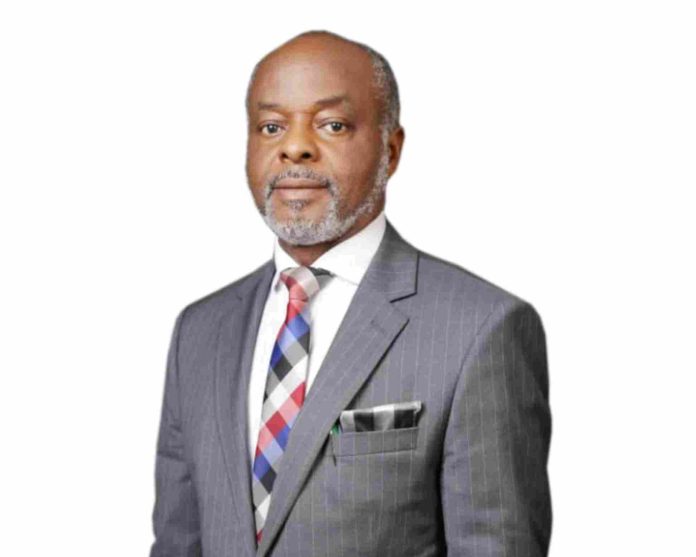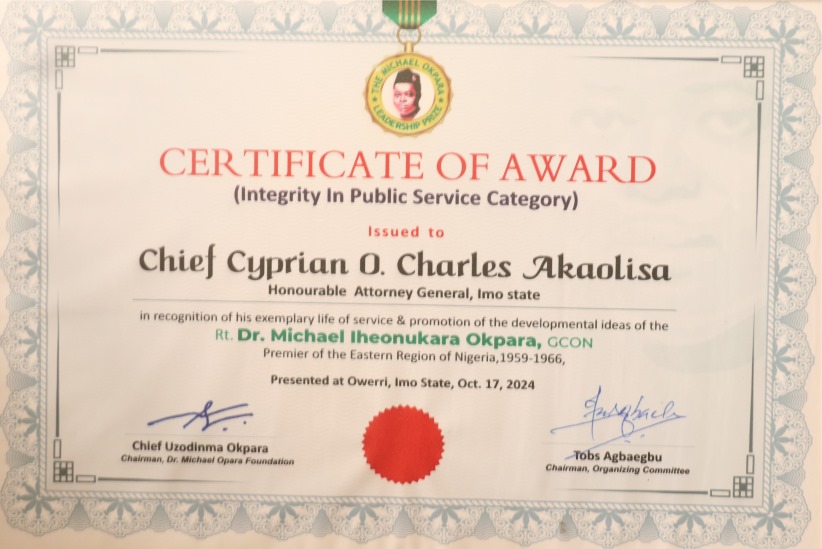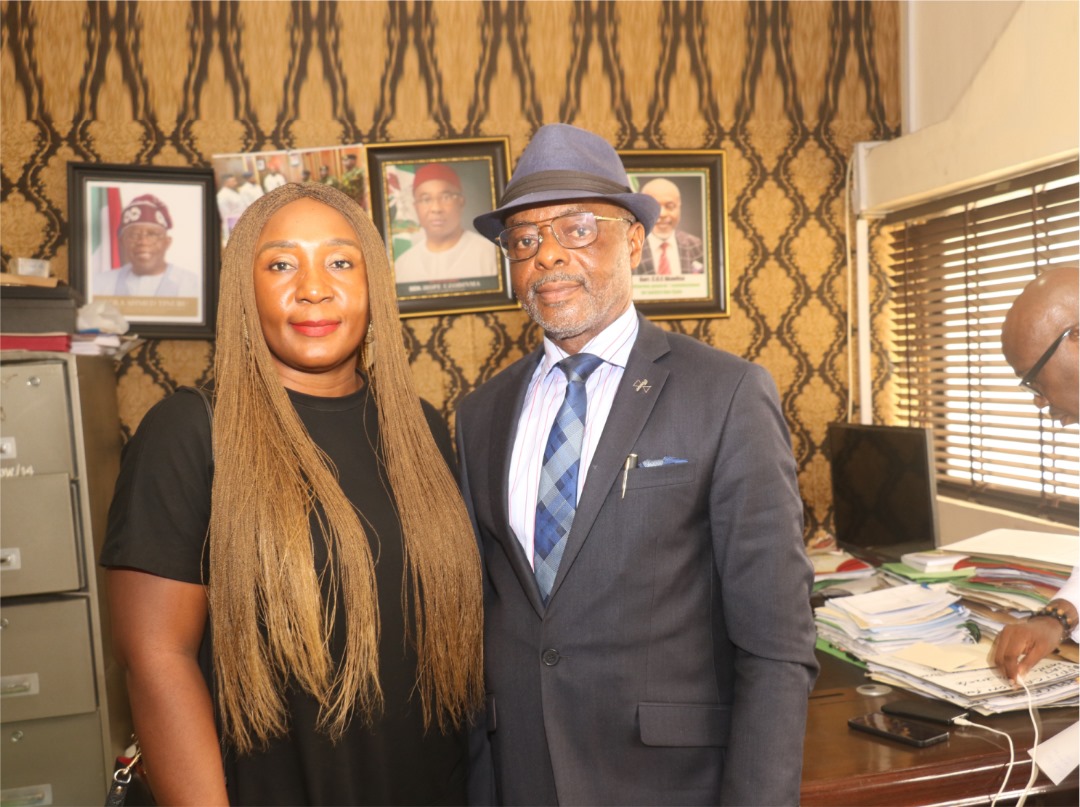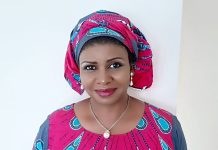NOW ONLINE! NEWSWIRE MAGAZINE – IN FULL!
The Legal World Never Sleeps And Neither Do We.
It’s always an honour to bring you fresh insights from the ever-evolving world of law, and this edition is no exception.
In our quest to keep you informed, inspired, and ahead of the curve when it comes to events, topical issues and trends in Nigeria and legal ecosystem, we are excited to unveil the FULL online edition of NEWSWIRE Law Events Magazine on our blog.
Whether you’re a legal practitioner, enthusiast, or simply curious about current trends, we’ve curated this edition with you in mind.
So, settle in, explore at your own pace, and enjoy our comprehensive coverage of the biggest legal stories and developments from the legal community.
We are grateful for your continued passion and readership.
Read The Full Story Below
Hon. Chief (Sir) C. O. C. Akaolisa, KSJI is the immediate past Attorney-General and Commissioner for Justice in Imo State of Nigeria – a position he first occupied in 2020. Born into the illustrious and devoutly Catholic family of the late Sir H. N. Akaolisa, KSJI, and Lady Josephine Akaolisa, of Ezeogwu Okwuamaraihe Autonomous Community of Awo-Idemili Clan in Orsu Local Government Area of Imo State on the 15th of October 1962, Akaolisa (or C.O.C, as he is fondly called by his admirers) had his primary education at Amaraihe Primary School, Ezeogwu, Awo-Idemili and at St. John’s Primary School, Agbani in Nkanu LGA, Enugu State. From there he proceeded to College of the Immaculate Conception (C. I. C.) Enugu, a renowned secondary school in Enugu State, which is known for its strong academic performance and alumni network.
A pioneer law graduate of the Imo State University and a consummate lawyer, Akaolisa was called to the Nigeria Bar in 1986 and has been in full legal practice since 1997. In 1990 he set up his law firm in Orlu, after a two-year stint of tutelage at the law chambers of I. I. E. Nnodim & Company between 1988 and 1990. He also had a short stint at the law firm of M. B. Alonge & Co. in Owo. Ondo State during his youth service. He was a partner at the firm of Akaolisa, Olumba & Co., (known as Ultimate Chambers) in Lagos – before he eventually returned to Imo State in 1998. After spending a little time with the Imo State government between 2001-2002 he set a private firm in Owerri and was Principal Counsel at C.O.C Akaolisa & Co. (known as Amaraihe Chambers) in Owerri, the state capital.
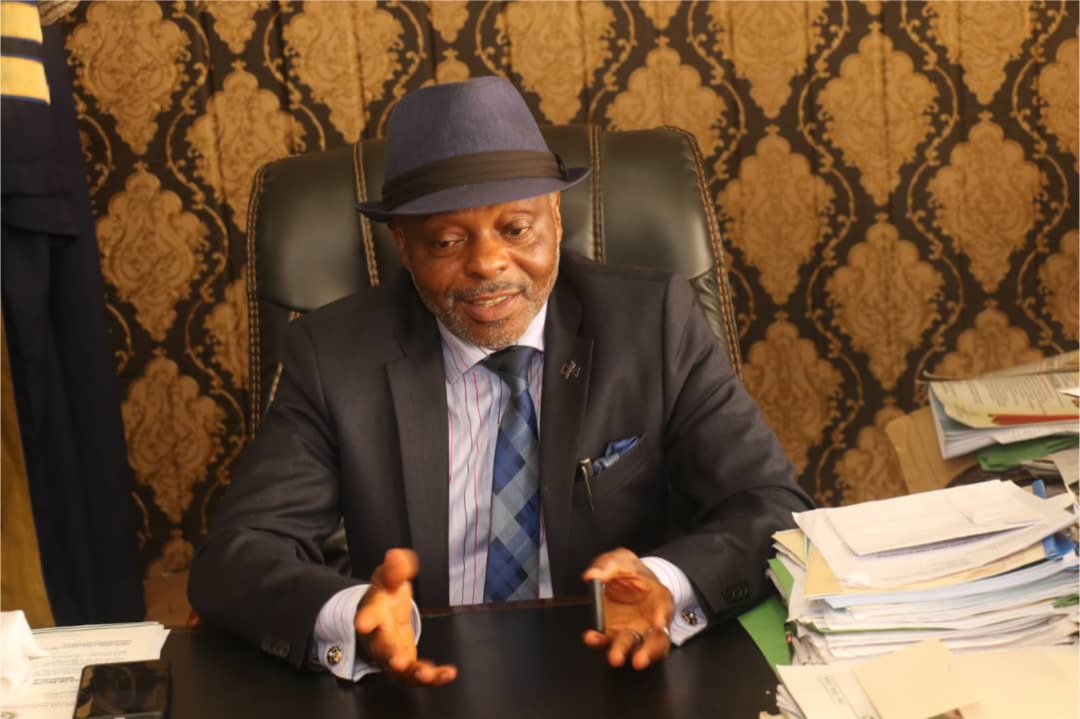
He was an active player in the Nigerian political scene prior to, and since, the advent of the present democratic dispensation. During the Babangida political transition in the early 1990s, he was the State Legal Adviser of the Social Democratic Party (SDP) in Imo State, and also the Orsu National Delegate to the Jos SDP Convention of 1993. He was the national coordinator and campaign manager of Chief Ralph Obioha’s Presidential Campaign Organization 1993 and later a member of the Eastern Caucus of the Chief MKO Abiola Presidential Campaign Organization. He left Imo State after the annulment of the June 12 election to join other members of the National Democratic Coalition (NADECO) in the fight to restore the 1993 presidential election.
He has held the following positions in government:
– Special Assistant (Political) to the Secretary to the Imo State Government (1999 -2001);
– Executive Assistant to the Governor on Administration (Cabinet Office, 2001-2002);
– Executive Assistant to the Governor on Electoral Matters (2002);
– Member of the Enlarged Executive Council Imo State Government (2001-2002);
– Transition Committee Chairman Orsu LGA (2008 -2010);
– Sole Administrator Orsu LGA (2010);
Hon. (Chief) Akaolisa) has also served in various government panels and committees, including as Chairman, Voters Registration
Mobilization Committee; Chairman, Owerri Timber Market Relocation and Development Committee; and Member of the Panel on Review of the Imo State Local Government System.
Akaolisa is a proud member of several professional bodies including the International Bar Association (IBA) in which he serves on the Anti -Corruption Committee; and the Nigerian Bar Association (Owerri Branch). He is the Founder and President of the Citizens Watch Initiative, a pro-democracy advocacy group, and also President of the Ezinwanne Foundation – a network providing assistance to widows.
Not surprisingly, in as As a reward for his professional pedigree, experience and expertise, as well as his philanthropic activities, C.O.C is the recipient of numerous awards – the most notable being the following:
– NAFDAC Grassroot Ambassador, 2009;
– Distinguished Award (presented by the NBA Owerri Branch 2001.
– Certificate of Merit as Patron and Advocate by the spinal injuries Association of Nigeria; and
– Award of Special Recognition by the Orlu Diocesan Mass Servers Association;
– Award for Integrity in Public Service (presented by the Michael Okpara Foundation 2024);
– Outstanding Community Development Award and Distinguished Personality Award (presented by the Arise Africa Magazine), 2017, 2018 and 2020.
– Award of Honour as Patron by the Catholic Women Organization (CWO) Maria Assumpta Cathedral Owerri 2025
– Award of Honor by the Catholic Men Organization (CMO) Maria Assumpta Cathedral Owerri 2023 and numerous other awards from different churches, organization and communities in Imo State
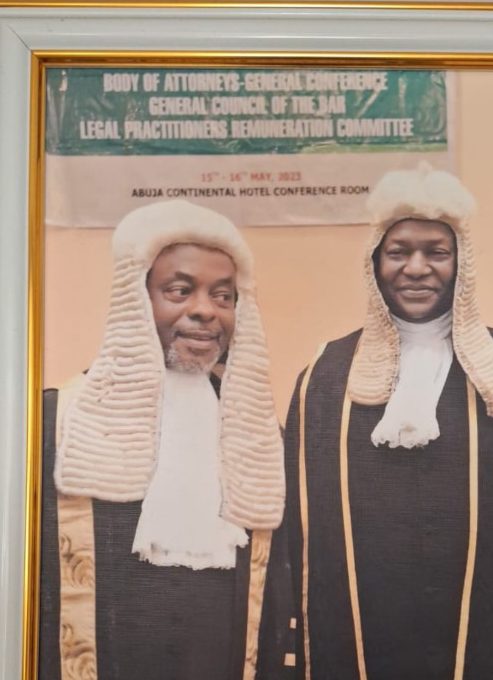
As a pioneer Christian Father of St. Paul’s Boys Secondary School Chaplaincy, C.O.C has also received the following awards from the chaplaincy:
– Special Ambassador Award by the Chaplaincy, 2010;
– Ide Chaplaincy Award (presented by the Catholic Women’s Organization), 2012;
– Certificate of Merit by the Chaplaincy CMO, 2013;
– Pillar of the Church Award by the Chaplaincy Council, 2015;
A proud exponent of his Igbo cultural heritage, C.O.C is also the holder of the following chieftaincy titles
– Ezinwanne Orsu
– Ezinwanne Okigwe
– Egbe Eji Eje Ogu of Imo State
– Ezinwa of Awo -Idemili Ancient Kingdom
– Ezinwanne of Amanator Okporo
A prolific author, the Attorney-General has written extensively on issues of national and global importance. He is the author of three books, ANTHOLOGY OF IGBO JURISPRUDENCE, BEYOND REDEMPTION – ODYSSEY OF POLITICAL INGRATITUDE and ‘PRINCIPLES OF IGBO LAW AND JURISPRUDENCE’, (which since its release has become a highly recommended research document on legal issues in Igboland). He has also published a number of articles in various national dailies. He has also written several poems published in his book, “Petals of Identity”.
It will be recalled that on July 9, 2021, a six-member panel of the Legal Practitioners’ Disciplinary Committee (LPDC) banned Akaolisa from legal practice for five years, over an allegation that he used his position as Attorney General of Imo State to secure the release of his former client a suspect who was standing trial for murder. The decision came as a rude shock to the people of Imo State whose perception and knowledge of Akaolisa in his more than thirty-five years of active practice as a lawyer, ran counter to the rationale behind the LPDC’s decision. His enviable record of private legal practice as well as human rights activism spanned a wide scope of activities – including free legal advice and representation for the less-privileged and all those oppressed in whatever way or form, but lack the financial ability to pay for legal counsel. The general impression, therefore, was that the ban was a miscarriage of justice borne out of a political vendetta.
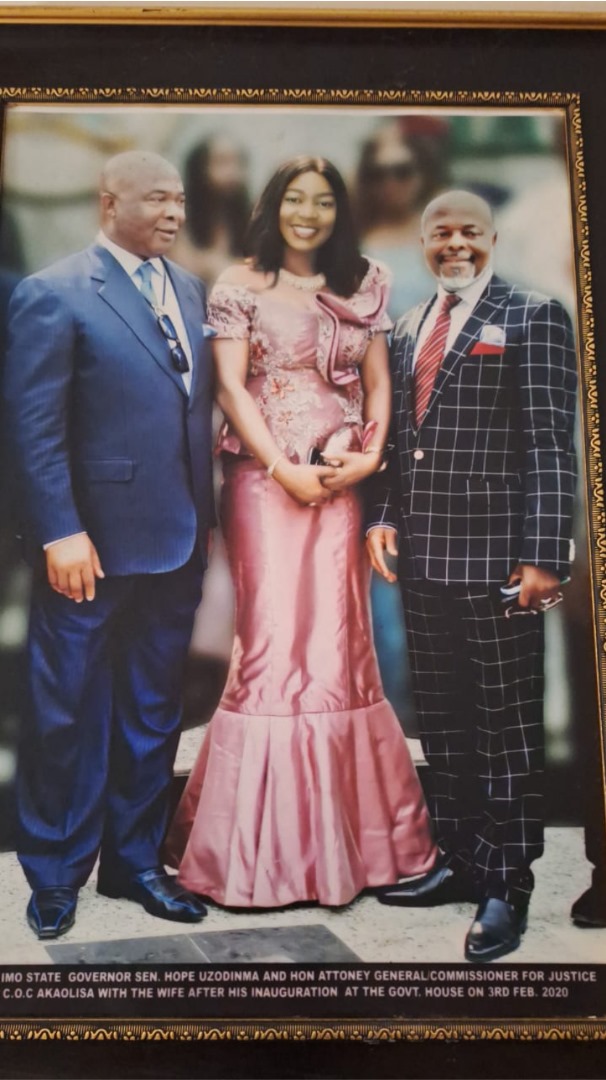
Sources said Chief Akaolisa, in a demonstration of his magnanimity, had stood in as defence counsel on a pro-bono case before the Orlu High Court in which one Mr Paulinus Nwanochie was accused of murder, and remanded at the Owerri Correctional Center since 2012 when the matter was instituted. Upon realizing the penurious financial state of the accused (and his parents, who were also detained at one time), Akaolisa had agreed to handle the matter.
At the time Nwanochie was released on bail on the orders of the Owerri High Court presided over by Hon Justice Ikpeama, Akaolisa had ceased to represent the accused, following his appointment as the Attorney General and Commissioner for Justice in Imo State. The records, according to these sources, showed that the decision of the Court was borne out of a directive issued by the Attorney-General of the Federation (AGF) for Correctional Centers throughout the country to submit list of inmates that were sick, elderly and young to the Chief Judge of the State for jail delivery, with no input whatsoever from Akaolisa.
In a recent unanimous judgment, however, the Supreme Court found the decision of the LPDC to be flawed. The five-year ban was overturned following an appeal and a series of suits against the Committee. Justice Mohammed Baba Idris, who delivered the judgment on the 4th of April 2025 on behalf of the five-member panel of Justices of the Court, led by Hon. Justice John Iyang Okoro stated: “Having considered the arguments presented by counsel, the court found the appeal of the appellant meritorious … The decision of the Legal Practitioners Disciplinary Committee (LPDC) delivered on the 9th of July 2021, finding the appellant liable for infamous conduct and suspending him from legal practice for a period of five years, is hereby set aside.”
In the aftermath of his victory at the apex Court, Chief Akaolisa sat down with the editors of NEWSWIRE Law Events Magazine to speak about his ordeal, what it has taught him, and its implications for the legal ecosystem in Nigeria.
Excerpts:
NEWSWIRE: Congratulations on your victory at the Supreme Court, which lifted the five-year ban imposed on you by the Legal Practitioners Disciplinary Committee (LPDC). Can you give us an overview of the sequence of events that led to the allegations against you, and your suspension?
AKAOLISA: Thank you. I had a former client called Paulinus Nwanochie, from Amankwor Community in Ebenator Town in Orsu Local Government Area of Imo State. There was a chieftaincy dispute in that community, in which he was allegedly acting on behalf of one of the parties to the dispute. This Paulinus Nwanochie was alleged to have acquired deadly weapons and was using them to terrorize the people of that community, and was arrested on charges of terrorism. As his lawyers at the time, we went up to Umuahia to put up his case, and the Inspector-General’s office requested to see his traditional ruler on the following Wednesday – via an invitation that we were instructed to deliver to said traditional ruler. And so we did; we served him with the invitation letter. This Paulinus had told us that his traditional ruler had already settled the matter between him and the other parties to the dispute, but that his adversaries were just pursuing him for nothing. This traditional ruler was supposed to come on Wednesday, but on Monday (two days prior) Paulinus was charged to court for the murder of one Mr. Alphonsus Akuma. That was the genesis of the matter. Because he was a murder suspect, he couldn’t be released on bail. We tried everything to convince the Judge to grant him bail, but the Judge only said he was going to grant an accelerated hearing. The case went from Justice L. C. Azuama to Justice A. C. Ononeze-Mmadu, and from there to Justice Onii Egbunighe. It was while the matter was before Justice Egbunighe that we found ourselves caught up in the Covid-19 challenge. Meanwhile, the suspect was coming to court regularly in spite of his condition. He had gotten quite sick while in prison, he had been battling with diabetes, which had worsened with his being incarcerated. Meanwhile, Justice Egbunighe traveled to the United States of America just before the beginning of the pandemic. She had assured us at the time that she was going to conduct an accelerated hearing on the case, but not to grant bail. Because of Covid restrictions, the Judge ended up staying in America for two years. During this time, Paulinus had gotten very sick in prison. And I had been appointed Attorney-General of Imo State.
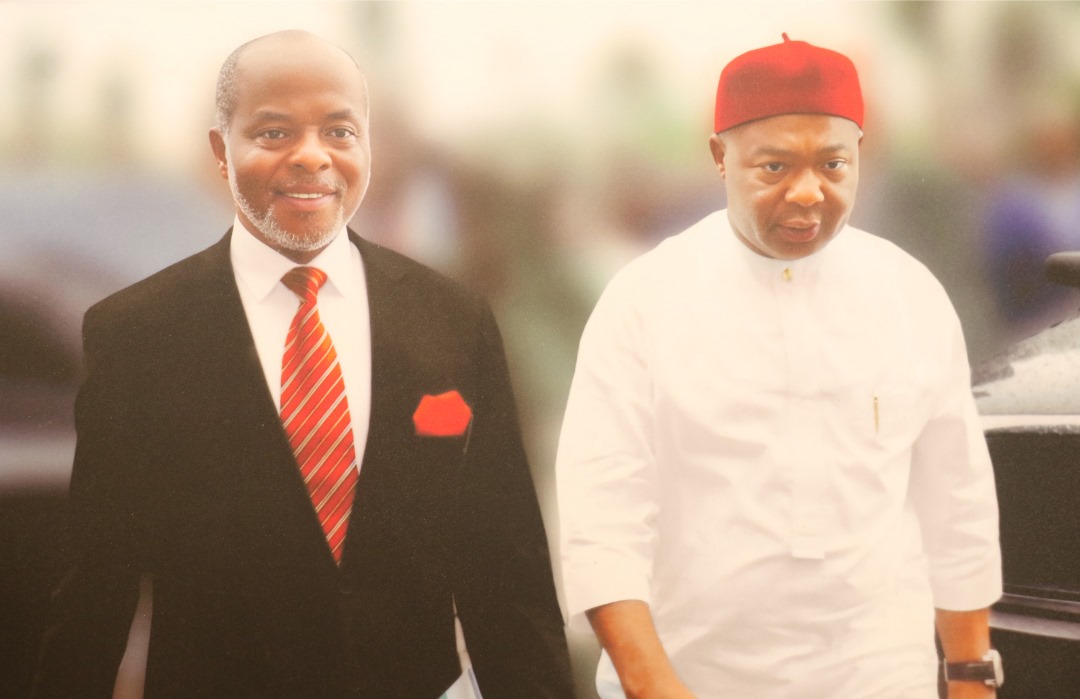
As part of the Federal Government’s response to the coronavirus pandemic, the Attorney-General of the Federation wrote to all the state Attorneys-General in the country and the management of all correctional centres to submit to the judiciary in their respective states the names of inmates that were sickly, elderly or under-age for ‘jail delivery’ so as to decongest the prisons in the face of the Covid threat. So, the correctional authorities in Imo State wrote their list and sent it to me. Incidentally, the list included the name of my former client, Paulinus Nwanochie, who, as I said, had a severe case of diabetes. I duly forwarded the list to the state Chief Judge for their action. That was all I did.
The CJ went to the prisons, accompanied by the judges, for the jail delivery, and ordered all the people whose names were on the list (the sick, elderly, etc.) to be brought out. When they came to that of my former client, the CJ said they should go to court and hear his application for bail. When the matter was called up in court (as I was told, because I wasn’t in court), Justice Ikpeama, who did the matter, saw the application and his medical records – especially pertaining to his illness – and granted him bail. As I said, I wasn’t in court, neither did I go for the jail delivery as I had become the Attorney-General and Commissioner of Justice by then, and was no longer doing that matter.
However, the complainant – along with some politically-interested persons – wrote a petition against me, alleging that I ‘used my influence’ as AG to mastermind the release on bail of a murder suspect – whereas I did nothing of the sort. Unfortunately, the Legal Practitioners Disciplinary Committee took everything at face value. They hardly did any sort of investigation as to the truth of the complaint against me (which was their primary duty, to investigate allegations). They simply constituted themselves into a court. They summoned us – the complainant and I – to come before them. I came, and I put up my defence. The complainant – when asked to call his witnesses – said he had none to call, and that he was relying on the affidavit he submitted against me. My counter-affidavit was there, and I relied on it, too. I categorically denied the allegation; I had nothing whatsoever to do with it. I produced documents to show that I was not part of the process, apart from having forwarded the aforementioned list to the CJ for jail delivery. I didn’t participate in the process that led to the suspect’s being granted bail. There was no evidence that I took any part in negotiating the bail considerations. Yet the LPDC found me guilty, and suspended me for five years. I went on appeal at the Supreme Court, with the confidence that the learned Justices of the apex court would vindicate me at the end of the day.
In their judgement, the JSCs said they did not find an iota of evidence indicating anything untoward that I did that amounted to professional misconduct or abuse of office. It was clear and highly regrettable, the court added, that the complainant was simply pursuing a vendetta against me instead of allowing the suspect to go and face his trial. The Supreme Court said they would not allow that kind of thing to happen. And with that, they overturned the ban.
Q: In what way or ways would you say the ban affected you both personally and professionally?
A: It affected me seriously, because for a state Attorney-General to be accused of professional misconduct and abuse of office, it is a grievous matter indeed. First of all, a lot of people who had no information as to what happened, took it at face value, especially considering the suspension, and that changed their perspective about me and what sort of person I was. But it was gratifying to note that the lawyers in Owerri who knew me, and the national NBA (the Nigerian Bar Association) who also knew me, simply said Akaolisa would never do such a thing. Whenever the opportunity presented itself, I gave them my own account of events. The politicians who instigated the matter against me were busy pressuring the Governor (Sen. Hope Uzodinma) to remove me as Attorney-General, but His Excellency said no, I know Akaolisa; he wouldn’t do such a thing. He will be vindicated at the Supreme Court. My Governor stood by me, the NBA Owerri branch stood by me, as did the national body. Anybody that read the facts that led to my suspension came to the inevitable conclusion that I did nothing. It was, as the Supreme Court found, a clear case of political witch-hunting.
Q: If, as you say, it was politically-motivated, or the result of a personal misunderstanding, why?
A: At the time this allegation was made against me, we (the government of Imo State) had a dispute with Rivers State on the issue of oil wells. At the time we agreed at a meeting that the two states should remain as they are, and that no further action should be taken pending when the National Boundary Commission would come and do a proper assessment of our common boundary. Suddenly and totally unexpectedly, however, Rivers State went to the Supreme Court and filed an originating process against Imo State. Chief E. C. Ukala, SAN was the lead counsel of River State in that oil well saga. He was also the Chairman of the Legal Practitioners’ Disciplinary Committee that oversaw my case. I submitted myself to the jurisdiction of the LPDC believing that the senior counsel, senior Justices and Senior Lawyers in the panel will not allow sentiment and bias to over shadow their sense of justice but unfortunately I was wrong. Everything that concerned the jail delivery matter was put squarely upon me. Sitting as the Chairman of the LPDC, Ukala simply used that office and his influence over the members of his Committee to clamp that suspension on me – in defiance of the clear and incontrovertible facts. Because if there was a judicious and unbiased appraisal of the facts, the Committee wouldn’t have found me guilty of any infractions whatsoever. But Ukala was blinded by his prejudices from the case we had against Rivers State, which led him to orchestrate that ban on me.
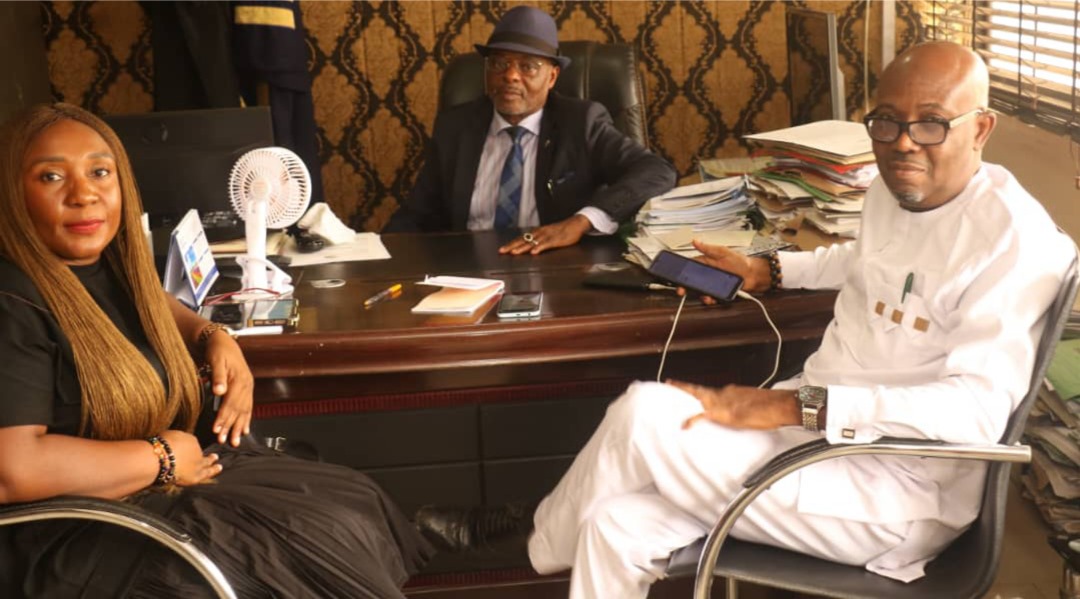
And that is unfortunate, because the members of the LPDC were very highly regarded professionals – Senior Advocates of Nigeria, Attorney-General, Court of Appeal Justices, and so forth. But all of them were influenced by Chief Ukala to deliver that unfortunate verdict against me – which the Supreme Court has rightly nullified, as they did not find any basis for suspending me for five years.
This whole episode is simply an indictment on the LPDC and its Chairman. In the end, it was Ukala, not me, who stands guilty of abusing his office. He used the instrument of the LPDC to fight a political battle between Rivers State and Imo State, and to pursue a personal matter. It is shameful what he did, and he should apologize to the entire nation, and especially to the NBA and to the Body of Benchers, for that singular act of using his office to fight a personal war. I am also waiting for their unreserved apology.
Q: Now that the ban has been overturned, what next? Are you, perhaps, going to take legal action against the LPDC?
A: I’m considering all the options available to me; it’s not a decision I want to take in a hurry. At the appropriate time, I’ll take what I think is the proper and legal action to take to undo the effect of what was done to me, denting my image and casting all sorts of defamatory aspersions against my person and my office. I’ll consider what’s best to do under the circumstances.
Q: Don’t you think it is time for the NBA to wade into this matter in a more active way, to prevent this apparent miscarriage of justice – as you have characterized it – from reoccurring in the future?
A: As I said, I’ll consider every legitimate action I think is best. But whatever option I take, it will be such that the NBA and the Body of Benchers will call the behaviour of Chief Ukala to question. I will like the NBA in particular to look more deeply into this matter – at least to determine whether mine was an isolated case (just one individual being victimized by the system) or part of a wider pattern at the LPDC under Ukala. Remember that the said Ukala also tried to use LPDC to try the late Chief Lucious Nwosu, SAN, but the body of Benchers intervened and tried to settle the matter leading to the resignation of Chief Ukala from LPDC. There is a need for a more thorough re-assessment of the role, activities and decisions of the LPDC as a body under Chief Ukala.
Q: Generally, what’s your message to your learned colleagues across the country – especially those who may have formed a certain opinion about you as a result of this episode?
A: First of all, I want to thank the NBA Owerri branch, the legal community across Imo State, and the national body, for standing with me throughout this period. The NBA did not, at any time, malign me in any way, or do anything to show that I was a dishonorable person. They still gave me all the recognition due to me as the AG and Commissioner of Justice in Imo State and enabled me to function without feeling that I had been disgraced. The NBA President at the time, Olumide Akpata, his successor, Yakubu Maikyau, SAN, and the entire leadership of the Association were in solidarity with me, giving me my due recognition. I was welcomed warmly in all the functions of the NBA. I’m happy that my own professional constituency showed such support. In the end, this is also THEIR vindication – not just mine. Their standing by me in that manner was not in vain. I also thank the Supreme Court for this wonderful judgment; it has restored the confidence of the ordinary man when it comes to the judicial system in Nigeria – because this was a case of one single individual against those who thought they were powerful enough to use the instrumentality of the LPDC to carry out a vendetta. The Supreme Court was able to see the side of justice and uphold it. I thank the honorable Justices of the apex court for what they’ve done for me. I’ll never forget it. I sought justice, and they gave me justice.
I also want to specially thank my Governor, Senator Hope Uzodinma. He gave me the benefit of the doubt and was confident that I did nothing wrong. He was satisfied with my work and had no reason to question my integrity at any time. Even when he concluded his first tenure in office, he re-appointed me while this case was still going on. That shows you the level of confidence he had in me. A lot of people came to him and asked him to replace me with them, but over and over again he kept insisting that Akaolisa did nothing wrong. I’m glad that confidence was not misplaced. I’ll never take it for granted, and I’ll continue to do my best in this office as long as that confidence remains. I’ll not betray the trust he has shown in me. I’ll continue to do what C.O.C Akaolisa has come to be known for – standing up for the ordinary man. As a legal practitioner (and as AG) I was doing cases pro-bono for the lowly who had matters. My major orientation and inclination in practice was to help those who had nobody to help them. I was a human rights activist in that regard. I’ll continue to advance human rights even in my present capacity. My aim, on assuming this position, was to use this office to better the lot of those who are being oppressed in our society, and this office has been doing exactly that. A lot of people who are innocent of charges against them have been unjustly clamped into prison, but when their files are brought to my office, and I see no prima facie case against them, I discharge them, because that is what this office is all about. I’m the only person in Imo State who is constitutionally empowered to prosecute and release anybody for any offence. If I see files that contain frivolous allegations with no iota of evidence, I waste no time in discharging those people. And I’ll continue to do that; this is my calling, and this is why I am here. And now, as the Supreme Court has done justice to me, Imo people can rightly expect me to be even more dedicated to the course of justice on behalf of those who are being oppressed.
Q: If the ban had not been lifted (that is, if it had lapsed over the five-period), what damage would it have done? What would you have lost?
A: By the Legal Practitioners’ Act, when the LPDC hands down a directive concerning you and you appeal this directive, the directive (a five-year ban, in my case) will be stayed until the appeal is determined. It is only after the appeal fails that the ban will take effect. If I had not succeeded at the Supreme Court, I would no longer be Attorney-General, because you cannot be an AG if you’re no longer entitled to practice. The greater effect I suffered, I would say, was the wide circulation of my name as this disreputable lawyer who has been suspended. A lot of people saw the news, and many believed I did commit the offence that led to the suspension. So a lot of damage was done, and if the Supreme Court had upheld the ban, the damage would probably have been irreparable. Thank God that with the judgment – as well as with this interview we’re having – a lot of people will see the light of what happened and know there was no such thing as was alleged.
Q: You have certainly come a long way as a lawyer. Please give us a brief overview of your early education and especially why you chose to study Law.
A: When I was in secondary school – at College of the Immaculate Conception (CIC), Enugu – I discovered that I was Arts- inclined. I was very good, for example, in History, Literature and English. At that time, my school had a way of categorizing students in classes. If you were an Arts student, you were in Arts A, B or C. The same with Science – Science A, B or C. From Class 3, you would be so categorized. I was in Arts A. we did only Arts subjects, to the exclusion of Science subjects. As a top-grade Arts student, no major course appealed to me more than Law. So after my WAEC school certificate examinations, I filled my JAMB form; as my first choice I chose Law, second choice, Law; and third choice, Law. I was admitted into the Imo State University in 1981, we were the pioneer students of the university. I graduated in 1985, got to Law School and was called to the Bar in 1986. Since then, I’ve been in legal practice – 39 years now.
Q: What was your first big break as a lawyer?
A: I’ll tell you that I only worked in a law firm from 1987 (after my Youth Service) to 1990, just over two years, under tutelage in the chambers of Mr. (now Honorable Justice) I. I. E. Nnodim. His son, J. T. Nnodim (who is now a Senior Advocate of Nigeria) was Head of Chambers at the time. After those two years or so, I left and opened my own law firm in Orlu. From that day in 1990, I’ve been on my own. I moved to Lagos where I was in partnership with a friend, but I came back to Imo – this time to Owerri, worked with government for a while (under the leadership of Governor Achike Udenwa), and then opened my chambers again. I was on my own until I was appointed Attorney-General by Governor Hope Uzodinma. I cannot say that this or that was my big break; it has been more or less a consistent trajectory for me.
Having said that, though, I’ll say that over the years I have combined law practice with politics. That combination has somewhat defined my career path. I served as the Legal Adviser to the Imo State chapter of the Social Democratic Party (SDP). We were at the forefront of the June 12 election during the presidential candidacy of Chief MKO Abiola; I was part of the Abiola Campaign Organization, as a member of the South-East Caucus of the organization. I was also the National Campaign Manager of the Ralph Obioha presidential campaign. After the annulment of Abiola’s election, we were part of NADECO (the National Democratic Coalition) that fought for the restoration of Abiola’s mandate. I was at the Epetedo Declaration in Lagos (where Abiola declared himself President of Nigeria). I was there when Bola Tinubu and Ralph Obioha went into exile, and I was at the airport when Tinubu returned from exile.
It was in 1998, after my brother died and I returned home to bury him, that my father decided I wasn’t going back to Lagos. I was working with Tinubu’s campaign (for the governorship of Lagos State) at the time. But because of my father’s decision, I stayed back – and instead decided to join the gubernatorial campaign of Chief Achike Udenwa. After working with Udenwa for a while I resigned from that administration due to irreconcilable difference. I joined Hope Uzodinma in a political partnership to drive his wish to run for Governor in 2003. I was his campaign coordinator who in fact, established and ran the entire political structure for him. He ran under the banner of the Alliance for Democracy (AD), but his bid was unsuccessful. We continued the struggle when he decided to run for the Senate. I was with him when he vied for the Senate, won and served his first and second tenures, and then started gunning for the governorship of Imo State again. This time, God blessed us with victory, and Governor Uzodinma appointed me the state Attorney-General and Commissioner for Justice. So for 23 years, I’ve been working with Hope Uzodinma. That was how I combined politics with legal practice.
Q: What have been your greatest challenges?
A: Nothing can be perfect in this life. I know I’ve been somewhat handicapped in my law practice as a result of the combination I spoke about: politics and legal practice. If I had devoted all my time and energy to law, I don’t think I’d be where I am today. True, being AG (which was a political position) helped boost my career profile and fortunes. But I know that if I had not combined practice with politics, with the knowledge of the law that I possess, the training I got, the manner in which I commenced my practice and the people’s perception of my capacity as a legal practitioner, I would have gone far ahead of where I am now, professionally speaking. Politics kind of held me back as far as my trajectory as a lawyer is concerned. But at the same time, law practice helped me sustain my position in politics – considering the roles I was privileged to play.
One thing I did, though, even as I performed those political roles, was that I did not allow myself to fall out of practice. As the Legal Adviser of the SDP, I was going to court and defending the party in Imo State. I remember that more than once I had to drag Chief Evan Enwerem (the Governor of Imo State at the time, who was in the opposition NRC, National Republican Convention) to court. When I subsequently became the Legal Adviser of the PDP (Peoples’ Democratic Party), I was going to court and defending the party. I was doing all the party’s cases. After a division arose in the PDP, we left the party and moved into the opposition APC (the All Progressives’ Congress), I became the zonal chairman of the APC in Imo State, as well as the Secretary General of the Hope Uzodinma Governorship Campaign Organization. When we secured the governorship ticket of APC, Chief Hope Uzodinma told me that when filling the governorship form with INEC (the Independent National Electoral Commission) I should insert my name as his running-mate (i.e. for the position of Deputy-Governor). In filling the form, I became the first deputy-governorship candidate to Hope Uzodinma.
However, that was not feasible, because both of us came from the same geopolitical zone of the state. So, I wrote again and submitted my resignation letter to INEC. And it became necessary to call on an Owerri indigene, in the person of Prof. Placid Njoku, to assume that role (of deputy-governorship candidate). So, I am the Deputy-Governorship Candidate Emeritus! (laughter).
Q: What kind of reforms or changes, if any, would you like to see in the manner in which the LPDC and, for that matter, the Rules of Professional Conduct, regulate the legal profession in Nigeria?
A: The Rules of Professional Conduct are clear; and I don’t think we should change or relax them in any way or form. Lawyers are supposed to abide by the rules. When I was accused of a breach of professional ethics and abuse of office, I was confident that I did nothing wrong, and that if the rules were applied properly, I would be acquitted. My problem was not with the rules, but in how they were applied. Lawyers should stand on their integrity and ensure that their conduct is always in line with the rules. They should not allow themselves to abuse the privileges or ignore the obligations of their noble profession. That is what has guided me throughout my entire career. Apart from this particular case, I have never been accused of misconduct, or misuse of clients’ funds, or any such things; these are allegations you hear all over the place these days, with lawyers being called to question. That’s why I’m standing strong and proud after coming out of that indictment. I think lawyers should learn from my experience in this regard.
The LPDC, especially its current leadership and membership, should also learn from it. The work of that body is more investigative than judicial. The essence of the Committee is to ascertain the truth or otherwise of any allegations brought against a legal practitioner. The body must exhaust all investigative channels and satisfy itself that there is enough evidence to indict. In the absence of such evidence, they should discharge the lawyer in question.
And this is where the NBA can play a role, because the NBA branches know the lawyers practicing in their respective jurisdictions. They should know the ones that are upright, and the ones that are not – so that when an allegation is levelled against a lawyer, the NBA should be part of the investigation, before the LPDC takes action. In my case, it was clear that the allegations against me were motivated by factors outside the due discharge of my duties as a lawyer – and that the LPDC was itself a party to the dispute, rather than an unbiased arbiter. My advice to the present membership of the LPDC is that they do not toe the path of the former Committee led by Chief Ukala, SAN.
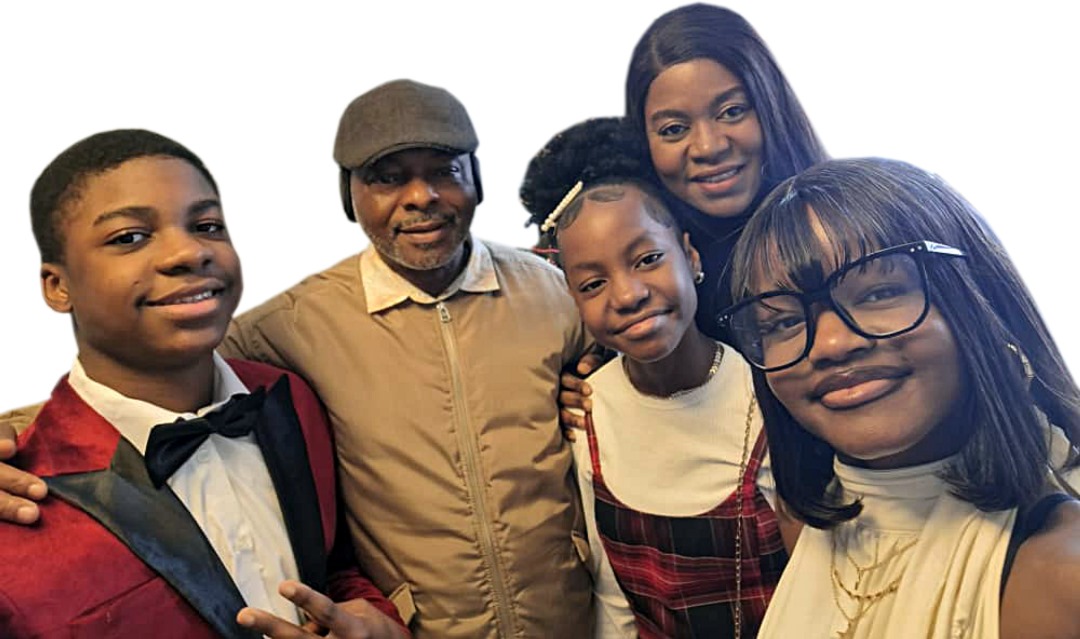
Q: What tangible or intangible benefits do you stand to derive from your vindication at the Supreme Court?
A: The experience has taught me to stand firm and be even more committed to the ethics of my profession. I also want to encourage younger lawyers not to allow any circumstance to make them break the rules, because in this profession, integrity is all you have; when it is destroyed, you have nothing. Thanks to my reputation for integrity, I have received many awards as a practitioner and as AG. Various organizations, including churches, have given me awards on the basis of my integrity. The Okpara Foundation in particular (named after Chief Michael Okpara, the first Premier of the Eastern Region of Nigeria during the First Republic) gave me an award for Integrity in Public Service. They do not give this sort of award to just anybody; you cannot buy it, either. If they did not see these qualities in me, they wouldn’t come all the way from Abuja just to present me with this award. Others, such as the NBA Owerri branch, refused to withdraw the award they gave me way back in 2017, even in the face of the suspension saga. As AG and Bar leader in Imo State, I enjoyed the confidence of my colleagues. The law officers in the ministry knew that C.O.C Akaolisa is a man of honour – which is why they were so bold in denouncing the mud that was being thrown at me. The most important benefit of what happened, I think, is that people’s perception of me will now change for the better. If anything, I stand taller now than I did before.
Q: The Orlu axis – and Orsu LGA, in particular – was one of the epicenters of the wave of insecurity that ravaged Imo State not so long ago. The area is in dire need of rehabilitation, development and security. What can be done?
A: We thank God for where we are today. The Governor has done everything to ensure that insecurity in Imo State is reduced to the barest minimum. There is a bit of calmness in Orsu today, even though there is no denying that a lot of damage has been done – so many lives were lost, and so much infrastructure was destroyed. The government is progressively making sure that things go back to normal. All the structures and facilities that were burnt or demolished are being repaired. After that, work is already being done on some of the roads. Some will be tarred, while others will be graded to ensure easy access between the various communities. I’m confident that the Governor will take Orsu as a special case, because the level of damage in that place was monumental. The place needs special attention, and if the Federal Government can also provide us with what will turn things around in the area, we’ll be most thankful. So I’m using this medium to call on the FG to come to the aid of Orsu.
Q: The legal profession in Nigeria, just like the country in general, is going through a lot. What can the legal profession, and especially the judiciary, do to help?
A: What is happening in certain parts of the country is cause for concern. But I’m one of those people who don’t believe that the judiciary in Nigeria is bad. Every system in every jurisdiction has a degree of deficiency, and therefore we cannot generalize. Having said that, though, I think the National Judicial Council (NJC) should ensure that only credible people get into the judiciary. The method of appointment of judges should be thoroughly scrutinized to ensure that only good people become judges in this country – people who have a passion for doing justice, who are naturally inclined to administer justice without fear or favour. Not people who just want to answer the name ‘Honorable Justice so-and-so.’ If the appointment process is gotten right, then the outcomes we’ll get out of our courts will be right. The NJC should never stop beaming their searchlight on judges and judicial officers so that the bad ones will be removed from the system and the good ones encouraged and rewarded. Because if we allow sentiments and extraneous factors to creep into the process, the outcomes we will get will be less than desirable. But I’m confident that, progressively, we’ll be able to get around the problems we face.
Q: Outside of the law, what are your hobbies and extracurricular interests?
A: When I was younger, I was an avid tennis player, but now I hardly find the time to play tennis anymore. But what I do have time for is to swim, and to read. Reading, swimming and writing are my hobbies. I write a lot, mostly on topical issues.
Q: How do you relax?
A: I stay in my house (laughter). But I take every opportunity I can to visit my wife and children who are outside the country. Whenever I travel, I relax for few weeks and then return to continue with my work. However, I don’t allow my work to overwhelm me to the point where I cannot maintain a healthy work-life balance – because I need that balance in order to be able to read and write as much as I want.
Q: What’s your advice for younger lawyers?
A: To grow in this profession, you must be serious-minded; you must face the practice of law squarely and give it everything you have. It is not a profession you approach half-heartedly. It is not a side-hustle. If you leave the practice for whatever reason to go do something else, in time the practice will leave you. That is why I, for one, find it difficult to accept an appointment, no matter how attractive, which would not give me room to go to court. In fact, when Sen. Uzodinma became Governor and the discussion of portfolios came up, I told him I would only accept the role of Attorney-General and Commissioner for Justice, because it would necessitate my going to court now and then. And he graciously agreed. Had he assigned me to another portfolio that wouldn’t accommodate my legal inclinations, I probably wouldn’t have accepted it.
Q: Do you see any future political role for yourself – say, an elected office?
A: My future political interest is in the hands of God. I hope you know that that’s what my name (Aka Olisa) means – ‘hand of God.’ It is God that will determine my political future. But as I said earlier, I have been involved in politics for a long while now, and since 2003, I have worked with Gov. Hope Uzodinma as a partner in actualizing our set goals, which is to liberate Imo State from bad governance. When our bid for the governorship of Imo was actualized at long last, we remembered all the promises we made to God and to the people of Imo State – namely, to use the resources of the state to develop the state, and not to make money for ourselves. This is the only government Imo State has had where no commissioner has access to the state’s resources. Under Hope Uzodinma, every commissioner is there for service – not to award contracts and enrich themselves. The Governor has brought integrity to governance, a situation which has made civil servants to enjoy the benefits of government that they didn’t enjoy before. Now, salaries are paid as and when due – as well as the 13th-month, which is paid at year’s end every year. There is credibility in the civil service.
It is unfortunate that people’s perception of Imo State has been shaped only by the insecurity. But the structure Hope Uzodinma has put in place here is worthy of commendation. Our prayer to God is to give us a future Governor who will sustain the legacies of Sen. Hope Uzodinma.
Q: And could that future Governor be …YOU?
A: Aka Olisa. It’s in the hand of God, as I said. (laughter)
NEWSWIRE: Thank you, sir, for your time.
AKAOLISA: It’s my privilege.
-Advertisement-
Grab our latest Magazine, "Chief Wole Olanipekun, CFR, SAN, A man of wide horizons and deep intentions". Get your order fast and stress free.
For more details about Newswire Law&Events Magazine, kindly reach out to us on 08039218044, 09070309355. Email: newswiremagazine@yahoo.co.uk. You will be glad you did
Download E-Magazine

